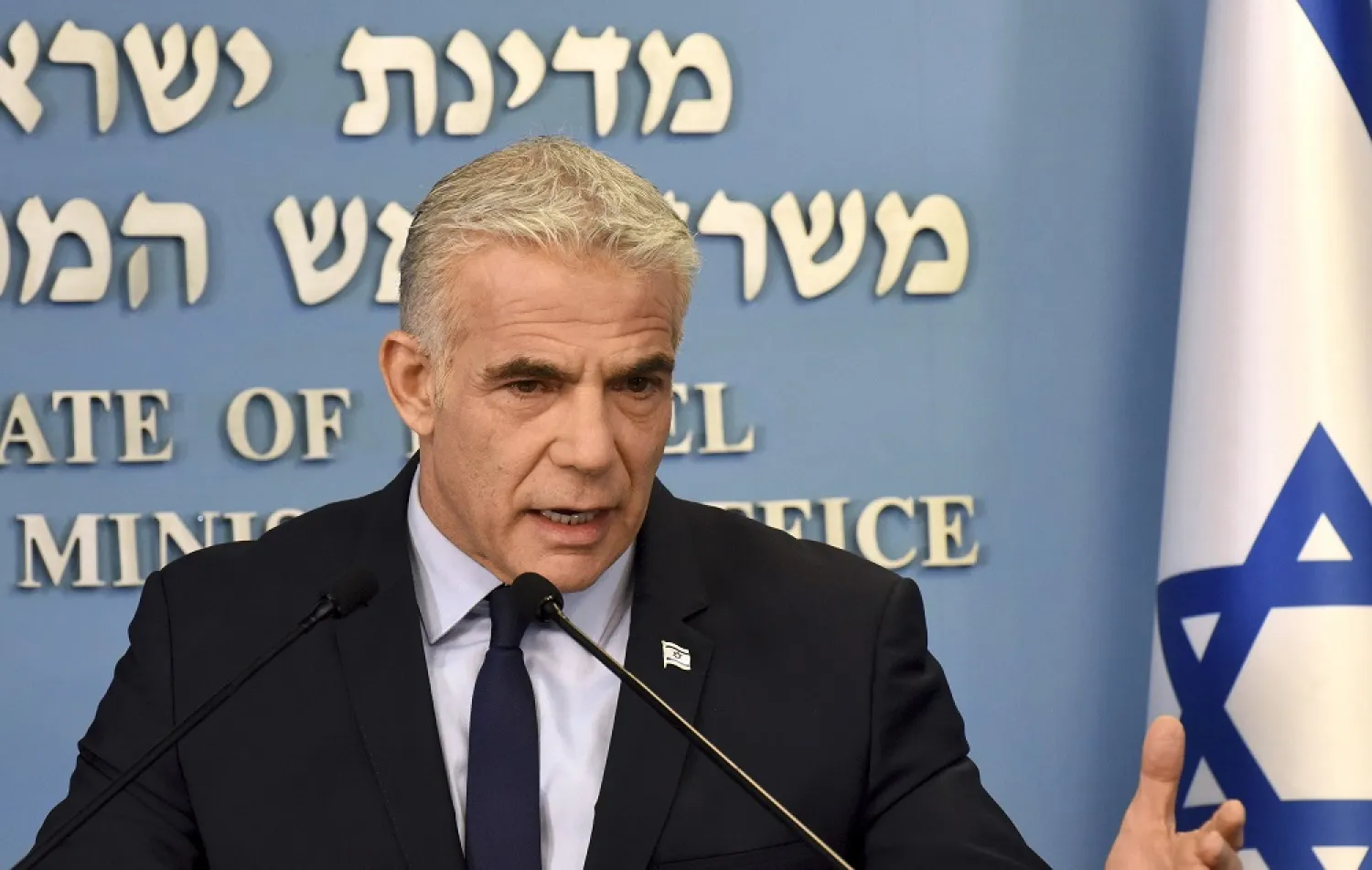Israel's prime minister urged President Joe Biden and Western powers to call off an emerging nuclear deal with Iran, saying that negotiators are letting Tehran manipulate the talks and that an agreement would reward Israel's enemies.
Yair Lapid called the emerging agreement a “bad deal” and suggested that Biden has failed to honor red lines he had previously promised to set.
“The countries of the West draw a red line, the Iranians ignore it, and the red line moves,” Lapid told reporters at a press conference in Jerusalem. An emerging deal, Lapid said, “does not meet the standards set by President Biden himself: preventing Iran from becoming a nuclear state.”
Biden has been eager to revive the 2015 deal, which offered sanctions relief in exchange for curbs on Iran's nuclear program. The original deal unraveled after then-President Donald Trump withdrew from it in 2018 and reimposed sanctions, with strong encouragement from Israel.
It remains unclear whether the United States and Iran will be able to reach a new agreement. But the Biden administration is expected to weigh in on Iran's latest offer in the coming days. With an agreement appearing close, Israel has stepped up its efforts to block it.
Iran insists its nuclear program is for peaceful purposes only, though UN experts and Western intelligence agencies say Iran had an organized military nuclear program through 2003.
Nonproliferation experts warn Iran has enriched enough uranium up to 60% purity — a short technical step from weapons-grade levels of 90% — to make one nuclear weapon should it decide to do so. However, Iran still would need to design a bomb and a delivery system for it, likely a monthslong project.
Israel is widely believed to have acquired nuclear weapons decades ago, something it has neither confirmed nor denied in keeping with a policy of nuclear ambiguity.
Tehran has increasingly claimed that the Americans are now delaying the deal, even though Iran spent months in back-and-forth negotiations that previously stalled in both Vienna and Qatar.
Iran's Foreign Ministry spokesman Nasser Kanaani said it has begun a “precise review” of the US response to a European proposal and would submit its own response to the Europeans, Iran's official IRNA news agency reported Wednesday. Kanaani did not elaborate.
Lapid warned that Iran would divert billions of dollars in unfrozen funds to hostile militant groups, such as Hezbollah in neighboring Lebanon, that threaten Israel.
“This money will fund the Revolutionary Guard,” Lapid said, adding later, “It will fund more attacks on American bases in the Middle East. It will be used to strengthen Hezbollah, Hamas, and Islamic Jihad.”
He stopped short of blaming any one power for the apparent progress of the talks, but he opened his statement Wednesday by singling out the European Union and suggesting that those nations and other negotiating powers are caving in to last-minute Iranian demands.
“The Iranians are making demands again. The negotiators are ready to make concessions, again,” Lapid said.
He was careful to repeat that Biden, who visited Israel last month during a trip through the Middle East, remains a strong ally.
Israel’s national security adviser, Eyal Hulata, is in Washington this week for talks with Biden administration officials, and Israeli Defense Minister Benny Gantz will head to the US on Thursday for meetings with the head of the US military’s Central Command, which oversees operations in the Middle East, and national security adviser Jake Sullivan.
Lapid is serving as Israel's caretaker prime minister until elections on Nov. 1, when he will face off against former Prime Minister Benjamin Netanyahu and other rivals. While the two men have deep differences, they hold virtually identical positions when it comes to Iran. In 2015, Netanyahu, now opposition leader, delivered a speech to Congress in an unsuccessful attempt to derail what would become President Barack Obama's signature foreign policy achievement.
Israel has long said it would not allow its regional archrival Iran to obtain nuclear weapons, and that it was not bound by the agreements between world powers and Tehran. It also has called for diplomacy to be accompanied by a “credible” threat to take military action against Iran if needed.
“We are not prepared to live with a nuclear threat above our heads from an extremist, violent regime,” Lapid said Wednesday. “This will not happen. Because we will not let it happen.”









